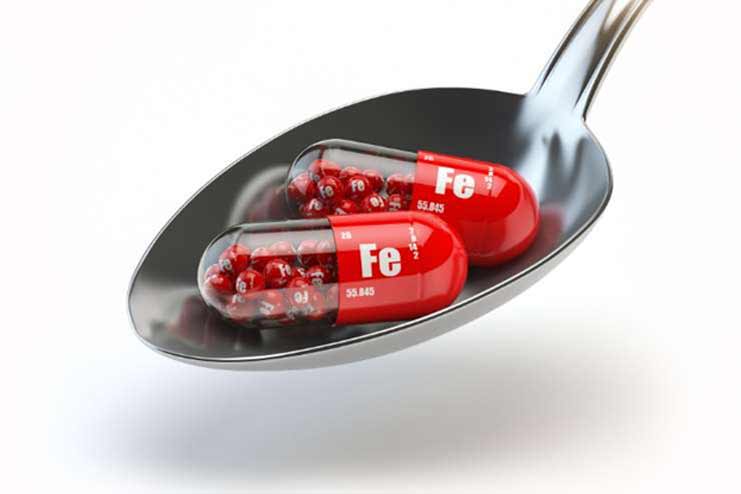Affiliate Disclaimer
Some links in this article are affiliate links. We may earn a small commission if you make a purchase through these links, at no extra cost to you. We only recommend products we find useful to our readersDietary supplements have become increasingly popular as more people choose to improve their health and well-being. Vitamins, minerals, and herbal extract all claim they are good for your health. However, it’s essential to remember that supplements can pose health risks if you don’t take them properly.
Serious problems can arise from possible combinations of drugs or underlying medical conditions. Consult a doctor before beginning any supplement regimen. This article will discuss the advantages and disadvantages of six particular supplements.
Vitamin D

Vitamin D is necessary for healthy bones and enhancement of the immunological function. It also lowers inflammation, stimulates the immunological response, and assists the body in absorbing calcium. However, taking excessive vitamin D might result in significant health problems, such as hypercalcemia. In addition to causing symptoms such as nausea, vomiting, and weakness, hypercalcemia, often known as excessive calcium level in the blood, can also cause renal difficulties.
For these reasons it’s recommended to seek the advice of a physician to ensure safety and effectiveness.
Iron Supplements

Consuming iron supplements helps prevent anemia and promotes synthesis of healthy red blood cells. Anemia, characterized by exhaustion, weakness, and shortness of breath, can result from inadequate iron intake. Iron is essential for the transportation of oxygen throughout the body. Iron supplements, on the other hand, should be used cautiously because an excessive amount of iron might result in toxicity. Iron poisoning can cause significant health problems, including damage to the liver, pain in the gastrointestinal tract, and even failure of organs, especially in those who do not have an iron shortage.
Consultation with a healthcare practitioner is beneficial in preventing the problems connected with iron poisoning while also addressing anemia treatment efficiently. Healthcare providers will perform routine blood tests to check iron levels.
Vitamin A

Vitamin A plays a role in maintaining healthy skin, supporting immunological function, and preserving good vision. Additionally, it helps the body defend itself against infections.
However, consuming excessive amounts of vitamin A will result in toxicity. This leads to significant health issues such as liver damage, problems with the central nervous system, and bone problems.
St. John’s Wort

People use St. John’s Wort as a natural remedy for anxiety and depression treatment. It provides an alternative medicine for people seeking relief from diseases.
St. John’s Wort, on the other hand, brings about severe dangers because of the possibility of harmful drug interactions. It can interfere with the efficiency of antidepressants, which can result in serotonin syndrome..
It also has the potential to diminish the effectiveness of birth control pills and blood thinners. It’s important to get professional medical advice before using St. John’s Wort.
Calcium

It’s important to consume calcium to keep bones healthy and prevent osteoporosis. If dietary consumption is insufficient, iIndividuals can meet their daily requirements with calcium supplements. However, consuming an excessive amount of calcium might result in serious health hazards such as kidney stones.
Herbal Supplements

Ginkgo biloba and echinacea are two examples of herbal supplements that are popular due to their potential health benefits. These benefits include increased cognitive performance as well as enhanced immunological support. Compared to conventional pharmaceuticals, these natural therapies are frequently considered among the safer choices.
On the other hand, consuming herbal supplements is not risk-free. Issues such as contamination, potency variability, and prescription medication interactions can pose significant health threats. For instance, impurities in herbal supplements might result in unanticipated adverse effects. Additionally, herbal supplements have the potential to interact with prescription pharmaceuticals. This can result in a reduction in the effectiveness of the original treatment or wrong responses.
It’s essential to have a consultation with a qualified medical practitioner prior to introducing any herbal supplements into your routine.
Conclusion
Supplement safety is of the utmost importance. While there are many health benefits associated with supplements, there are serious risks, including toxicity, drug interactions, and unpleasant effects. It is crucial to consult a doctor before taking any supplements to reduce potential health risks and interactions.
We encourage readers to visit our blog for additional health advice and ideas. There, we offer in-depth analyses to help you on your path to improved health.
Read More:
- 10 Best Collagen Supplements For Hair Growth
- 5 Best Omega-3 Supplements for Men: Enhance Your Heart Health and Vitality
- Boost Your Health: The Top 7 Selenium Supplements for Optimal Well-Being
In this Article


















